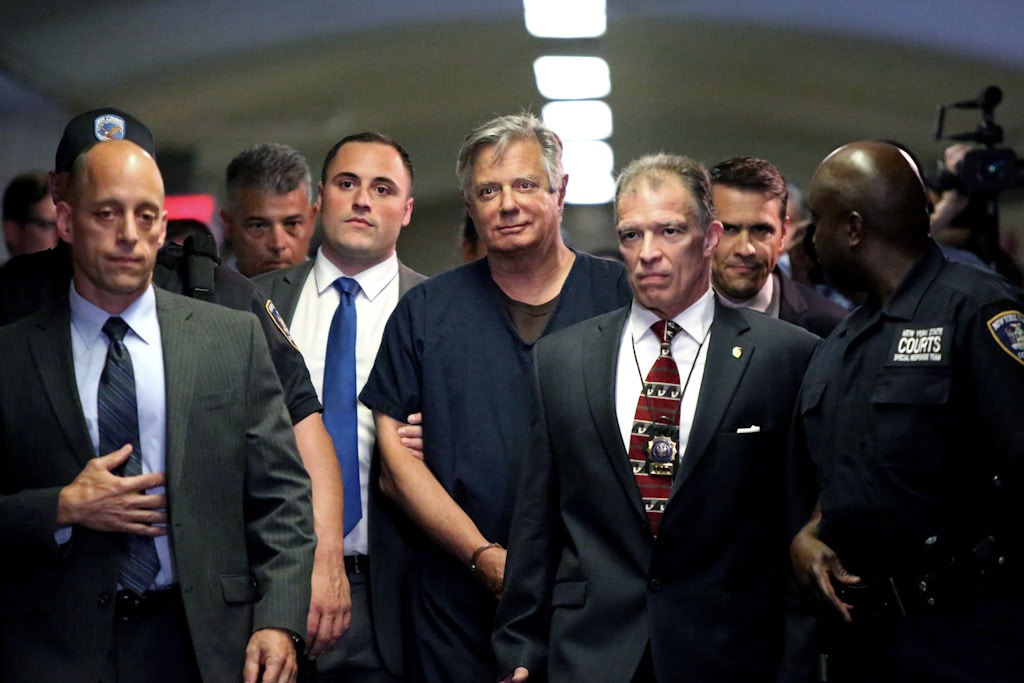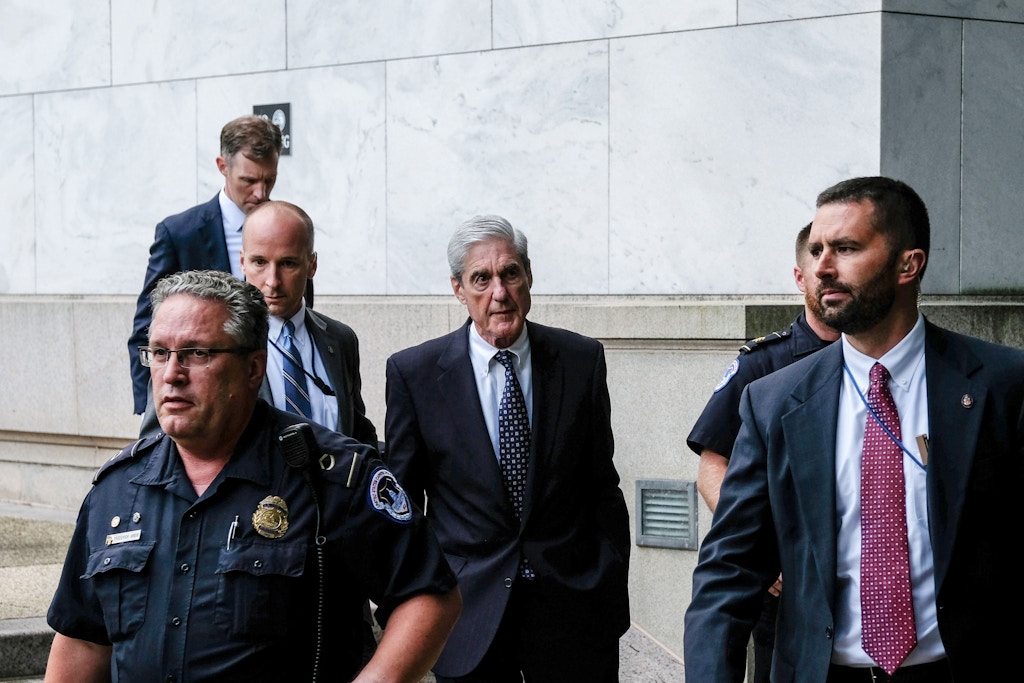When the FBI opened a secret investigation in the summer of 2016 into possible ties between Russia and the Trump campaign, top FBI officials deemed it an urgent priority and put more than a dozen people on the case.
But deep inside this week’s massive report from the Justice Department’s inspector general, a conflicting narrative emerged that suggests the FBI may not have pursued the investigation as quickly or aggressively as it should have. Instead, the investigation was slowed at key points by communication failures, concerns about political optics, and an overall lack of urgency in some quarters, according to a series of episodes recounted by the inspector general.
News coverage about the report was dominated by its repudiation of President Donald Trump’s claims of an illegal FBI spying campaign directed against him, as well as its criticism of significant FBI errors in seeking wiretap approvals. But the findings about the erratic pace and aggressiveness of the investigation — on the eve of the 2016 election — raise troubling questions as well.
It took seven weeks, for instance, before reports about Trump-Russia links from British intelligence source Christopher Steele finally reached the FBI investigators that fall, a delay that FBI officials acknowledged was “excessive,” the inspector general’s report said.
The slow pace of the investigation into former Trump campaign manager Paul Manafort — now in prison on money-laundering charges — was a particular source of frustration, multiple officials at the Justice Department and the FBI told the inspector general. One senior Justice Department attorney complained bluntly that line-level prosecutors working with the FBI were “not moving quickly enough on its Manafort investigation,” the report said.

Former Trump campaign chair Paul Manafort arrives to his arraignment in Manhattan Criminal Court on June 27, 2019 in New York City.
Photo: Yana Paskova/Getty Images
And a top Justice Department official at the time, Dana Boente, moved to speed up and centralize the entire Trump-Russia investigation in early 2017, weeks after Trump’s inauguration, because he believed that it “had not been moving with a sense of urgency,” the inspector general reported. The missed chances, some officials suggested, might have hampered the FBI’s abilities to gather fresh evidence of improper activity while it was happening.
How did such missteps happen during one of the most important and scrutinized investigations in the FBI’s history?
Top officials at both the FBI and the Justice Department, while pushing their people for an urgent investigation, were also voicing competing concerns about avoiding any “overt” steps that could be seen as influencing or interfering in the election that November, the report found.
Then-Deputy FBI Director Andrew McCabe directed officials to “get to the bottom of this as quickly as possible, but leave a light footprint,” and he and then-Deputy Attorney General Sally Yates “agreed that they did not want to do anything that could potentially impact candidate Trump,” the report said.
In the final weeks of the campaign, top FBI officials were also distracted by the discovery of a new cache of emails potentially related to the Hillary Clinton email investigation, leading then-FBI Director James Comey to send Congress an alert about the matter just 11 days before election — a move that Clinton blamed for helping tilt the election to Trump.
The FBI’s willingness to go to Congress with the new information on the Clinton emails — while keeping a tight lid on the Russia probe — bothered some people involved in the investigation. Steele, for one, told the inspector general that the FBI’s contrasting approach to the two cases was one reason he decided to break off his dealings with the FBI for a time.
The long-awaited report from the office of Inspector General Michael E. Horowitz was the most exhaustive examination to date of the FBI’s historic probe into Russia and the Trump campaign, and the final conclusions proved damaging to both the president and the FBI. Horowitz expanded on his findings in testimony Wednesday before the Senate Judiciary Committee, as Democrats and Republicans seized on different parts of the report to advance competing agendas.
In a central finding that dominated headlines this week, the review debunked Trump’s repeated claims that the FBI had illegally spied on his campaign, finding instead that the FBI had justified reasons to open the investigation. Nor was there evidence that “political bias” influenced the investigation, the report concluded.
The FBI has now weathered four of the most bruising years in its history, beginning with the Clinton email investigation in 2015 and on through the Trump-Russia investigations.
But at the same time, the report found “serious performance failures” by FBI employees in building the case and securing court orders. The FBI secured multiple wiretapping orders to eavesdrop on Carter Page, a former Trump advisor, from the Foreign Intelligence Surveillance Court beginning in late October 2016. The report found that those court filings contained significant mistakes and omissions regarding Steele’s reporting and other issues but said that “we do not speculate whether [Justice] Department officials would have authorized the FBI to seek to use FISA authority had they been made aware of all relevant information.”
FBI Director Christopher Wray promised more than 40 “corrective steps” to address problems identified in collecting intelligence, using informants, and organizing investigations, among other areas. Wray’s willingness to accept the “constructive criticism” from the inspector general sparked immediate scorn from Trump, who said his handpicked appointee “will never be able to fix the FBI.”
The FBI has now weathered four of the most bruising years in its history, beginning with the Clinton email investigation in 2015 and on through the Trump-Russia investigations. From Trump’s firing of Comey in 2016 to the anti-Trump texts exchanged by two former FBI lovers and Trump’s own Twitter assaults, the bureau has found itself in the political spotlight more than ever before, and this week’s report has turned attention yet again to its role in the 2016 campaign.
Michael German, a former FBI agent and author of a new book, “Disrupt, Discredit, and Divide,” which is highly critical of the bureau, said in an interview that the failures revealed in the inspector general’s report were “stunning and catastrophic,” particularly in such a critical investigation.
“It undermines the credibility of the FBI,” German said. “At every level, there were failures of process” that resulted in the FBI using incomplete or flawed affidavits in seeking wiretaps in the Russian investigation, he said. And yet at the same time, he added, “they were slow to recognize the evidence that did exist, and that hurt the investigation because time was lost.”
The report left unanswered the central question of whether a more efficient and less flawed investigation into the possible Trump-Russia links might have produced different results.
Trump himself, of course, has declared repeatedly that there was “no collusion” and thus, nothing to find and that the entire investigation was a “witch hunt.” Robert Mueller, who picked up the FBI’s investigation in May 2017 when he was named special counsel in the case, gave a much more nuanced answer in his final report in April, finding that “while the investigation identified numerous links between individuals with ties to the Russian government and individuals associated with the Trump Campaign, the evidence was not sufficient to support criminal charges.” At the same time, Mueller’s report identified 10 possible acts of obstruction of justice by the president during the investigation.

Former special counsel Robert Mueller, center, departs after testifying to the House Intelligence Committee about his report on Russian interference in the 2016 presidential election on Capitol Hill on July 24, 2019 in Washington, D.C.
Photo: Alex Wroblewski/Getty Images
The FBI officially opened the case, known by the code name Crossfire Hurricane, on July 31, 2016, in the midst of the bitterly fought campaign between Trump and Clinton. Days earlier, the FBI had learned from a diplomat for a friendly foreign government — unnamed in the report, but identified previously as Australia — that George Papadopoulos, a foreign policy adviser to the Trump campaign, had told him that he received “some kind of a suggestion” from Russia several months earlier that it could help the campaign with damaging information about Clinton, the report said. That “suggestion” came well before WikiLeaks’ release of a large tranche of Democratic emails that summer, and the FBI moved to start an investigation after receiving the Papadopoulos tip.
There was no debate within the FBI over the need to start an investigation, E.W. Priestap, who led the counterintelligence division at the time, told the inspector general. The combination of the Papadopoulos tip and the hack of Democratic Party servers created a situation that the FBI was “obligated” to investigate. Indeed, the inspector general concluded that “given the low threshold” for opening such a probe under Justice Department guidelines, the evidence that had surfaced “was sufficient to predicate the investigation.”
The FBI opened investigations that summer into Papadopoulos, Page, and Manafort, as well as retired Gen. Michael Flynn, a senior campaign adviser who was briefly Trump’s first national security adviser at the White House before he pleaded guilty to a charge of lying to the FBI about his contacts with a Russian ambassador. (Flynn is attempting to reverse his plea.)
Other evidence soon began to filter in to the FBI, including information from a confidential informant that Page had alluded to an “October surprise” and claimed that “the Russians” were ready to give him an “open checkbook” to fund a foreign policy think tank. (Page has denied the claims.)
Still, Boente — who Trump named as acting attorney general 10 days into his administration — told investigators that he “was concerned that the investigation lacked cohesion because the individual Crossfire Hurricane cases had been assigned to multiple field offices.” And he said the fact that prosecutors were using so few criminal tools in the cases signaled a lack of urgency.
The debate over the FBI’s Russia investigation is far from over. Attorney General William Barr named a federal prosecutor, John Durham, to conduct a separate investigation into the origins of the FBI’s Russia probe. That parallel review is still months from completion, but Barr — who has positioned himself as an unflinching ally of Trump on law enforcement matters — has already foreshadowed how it might turn out. In a statement rebutting the inspector general’s central conclusion, the attorney general said the FBI’s “intrusive” investigation into the Trump campaign began “on the thinnest of suspicions that, in my view, were insufficient to justify the steps taken.”
Eric Lichtblau | Radio Free (2019-12-11T19:00:45+00:00) How the FBI Botched Its Russia Inquiry, One of the Most Closely Watched Cases in Its History. Retrieved from https://www.radiofree.org/2019/12/11/how-the-fbi-botched-its-russia-inquiry-one-of-the-most-closely-watched-cases-in-its-history/
Please log in to upload a file.
There are no updates yet.
Click the Upload button above to add an update.